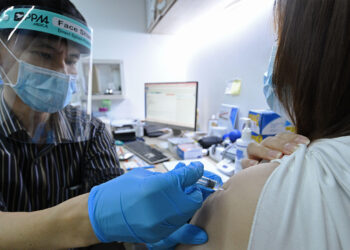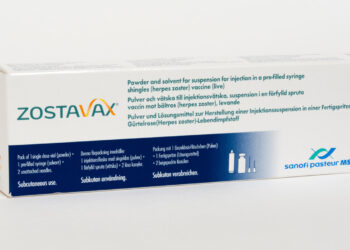TOPLINE:
A more comprehensive risk score for type 2 diabetes (T2D) may predict disease onset in individuals with normal weight and A1c levels, challenging traditional risk factor–based screening approaches.
METHODOLOGY:
- To determine how well a contemporary genetic score for T2D can predict the risk for incident diabetes, researchers conducted a nested cohort study of participants in a clinical trial of evolocumab, a drug that lowers low-density lipoprotein, in people on statin therapy with a history of heart attack, stroke, or artery disease.
- The study analyzed data of 9388 participants who underwent genotyping and didn’t have T2D at baseline (mean age, 63 years; 22.7% women; 97.3% White individuals; median A1c, 5.7%; mean body mass index [BMI], 28.7) and followed them for a median 2.3 years.
- A previously validated T2D polygenic score incorporating approximately 1.2 million genetic variants to predict diabetes risk across ancestries was used; a score was generated for each participant, categorizing them into high (top 20%) and low to intermediate genetic risk groups.
- Participants had A1c measurements taken at baseline and every 24 weeks, along with fasting plasma glucose measurements at baseline, week 12, week 24, and every 24 weeks thereafter for the evaluation of potential incident diabetes cases.
- This analysis also examined the impact of evolocumab on the risk for incident diabetes in participants without T2D at baseline.
TAKEAWAY:
- T2D was reported in 7.3% participants during follow-up, with the T2D polygenic score being a significant predictor of incident disease risk for people with and without clinical risk factors of excess body weight and high blood sugar (adjusted hazard ratio [aHR] per standard deviation, 1.22; P
- The incidence rate of T2D was higher in individuals with high T2D polygenic scores than in those with low to intermediate scores (12.1% vs 6.8%; aHR, 1.43; P
- The T2D polygenic score demonstrated stronger predictive value in participants with lower A1c levels and lower BMI; in participants with normal weight (BMI, 18.5 to
- Lastly, no significant increase in diabetes risk with evolocumab was observed, and the genetic risks were similar in treatment and control arms.
IN PRACTICE:
“A proportion of persons with normal body weight can be at substantial and comparable risk to patients with obesity based on their genetics,” wrote the authors. “These results suggest that these individuals are phenotypically different [ie, with obesity vs without], which is an important distinction that may have implications for how diabetes mitigation should be delivered.” Genetic information “may be an effective approach for the early identification of persons at greater diabetes risk,” they added.
SOURCE:
The study was led by Filipe A. Moura, MD, Yale School of Medicine, New Haven, Connecticut. It was published online in Diabetes, Obesity and Metabolism.
LIMITATIONS:
The original trial’s selection criteria may have enhanced the risk for incident diabetes in the cohort, potentially resulting in a group with a higher genetic risk than that seen in the general population. Furthermore, most participants in the trial were non-Hispanic White individuals.
DISCLOSURES:
The original trial was supported by an institutional research grant from Amgen to Brigham and Women’s Hospital. Some authors reported receiving consulting fees, research support, grants, or honoraria, serving on advisory boards, or having other ties with Amgen and other pharmaceutical companies.
This article was created using several editorial tools, including AI, as part of the process. Human editors reviewed this content before publication.
Source link : https://www.medscape.com/viewarticle/genetics-predicts-diabetes-despite-no-clinical-risk-factors-2025a100014u?src=rss
Author :
Publish date : 2025-01-17 07:41:25
Copyright for syndicated content belongs to the linked Source.














